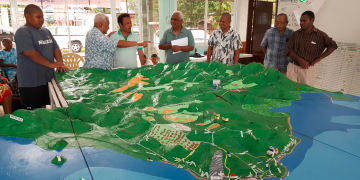Incentivising community´s participation as a motor of transformation
Mangrove reforestation financed by the project, supported by the community
Positioning women´s groups as agents of change
Collective initiatives for disaster risk reduction
Constructing strategic multi-level and multi-actor alliances
